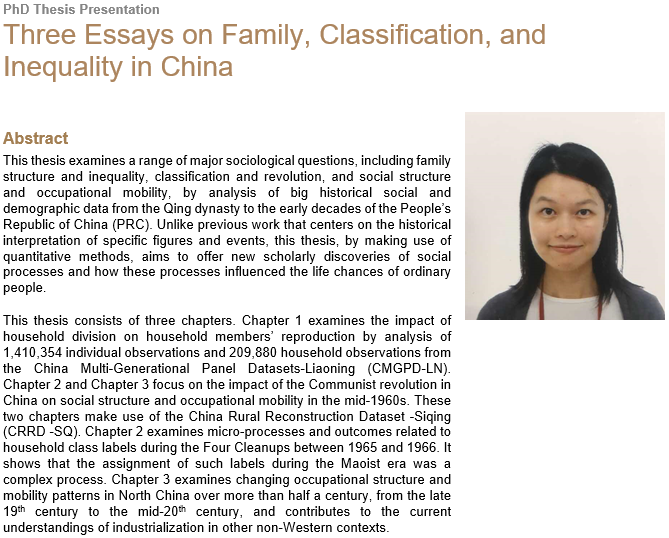Abstract
This thesis examines a range of major sociological questions, including family structure and inequality, classification and revolution, and social structure and occupational mobility, by analysis of big historical social and demographic data from the Qing dynasty to the early decades of the People’s Republic of China (PRC). Unlike previous work that centers on the historical interpretation of specific figures and events, this thesis, by making use of quantitative methods, aims to offer new scholarly discoveries of social processes and how these processes influenced the life chances of ordinary people.
This thesis consists of three chapters. Chapter 1 examines the impact of household division on household members’ reproduction by analysis of 1,410,354 individual observations and 209,880 household observations from the China Multi-Generational Panel Datasets-Liaoning (CMGPD-LN). Chapter 2 and Chapter 3 focus on the impact of the Communist revolution in China on social structure and occupational mobility in the mid-1960s. These two chapters make use of the China Rural Reconstruction Dataset -Siqing (CRRD -SQ). Chapter 2 examines micro-processes and outcomes related to household class labels during the Four Cleanups between 1965 and 1966. It shows that the assignment of such labels during the Maoist era was a complex process. Chapter 3 examines changing occupational structure and mobility patterns in North China over more than half a century, from the late 19th century to the mid-20th century, and contributes to the current understandings of industrialization in other non-Western contexts.

